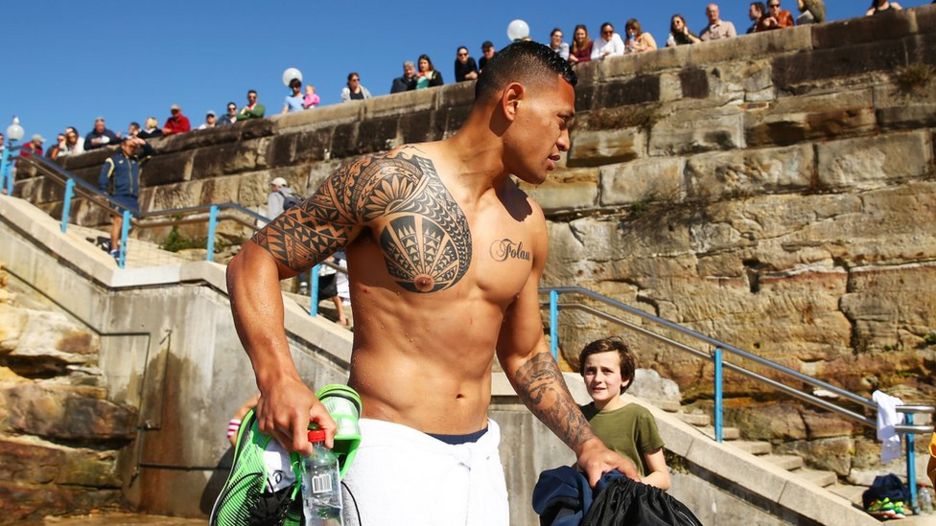 |
| Australian full-back Israel Folau is one of many rugby stars with large tattoos |
World Rugby chairman
Bill Beaumont said that “history will be made” when Japan faces Russia in the
tournament opener at Tokyo Stadium on Sept. 20, 2019, as it will be “the first
time the World Cup will be played” outside of the traditional major rugby
countries.
Beaumont added that the 2019 World Cup in Japan will
be a “catalyst” and “innovative” tournament that will “inspire new audiences
and participants across Asia and beyond joining the rugby family.”
World Rugby, the sport’s global governing body, has
launched an “Asia One Million” project with an objective to increase the
participating players for the game to that figure by 2020. Beaumont said “Our
ambition to break the one million mark will be fulfilled well before the World
Cup starts. It will be an incredible achievement.”
Jamie Joseph, the Japan
national team head coach, said: “I’m very excited about the World Cup. It will
be a great opportunity for our country to host the World Cup. It will be a
great opportunity to showcase the culture and the country.”
Daisuke Ohata, a former Japan national team star wing
and World Rugby Hall of Famer, said that like in many other sports, the World
Cup is the premier stage for rugby and hosting it in Japan is “extremely
meaningful.”
World Rugby has issued an
unprecedented request for participating teams at the World Cup, asking them to
cover up tattoos at public facilities such as hotels, pools and gyms. Tattoos
are closely associated with organized crime in the country, although acceptance
has risen in recent years due to an influx of foreign travelers.
World Cup CEO Brett Gosper said
that the organization understands “the cultural sensitivity.” He insisted that
the players are “respectful” about the decision, suggesting it will not be much
of an issue.
World Cup tournament
director Alan Gilpin said players and teams will also be encouraged to use
separate footwear indoors and outdoors.
Japanese authorities won't
force any teams to cover up. It will all be self-policing.
In 2016, Japan's tourism agency asked spas in the country to relax their rules, pointing out that there are major cultural differences between how tattoos are viewed at home and abroad. The organisation suggested offering visitors stickers to cover up their tattoos, or setting aside specific times of day when tattooed bathers can use the facilities.
Tattooed guests cannot use communal bathing facilities in 56% of Japanese hotels and inns.
Tattoos became linked to the yakuza, or Japanese mafia, in the 1960s after a deluge of films showed heavily-tattooed gangsters.
The yakuza gangs are centuries old and have an estimated 35,000 members.
You can also watch the video by clicking on the Play Button
Article source BBC, and The Sydney Morning Herald (edited)
